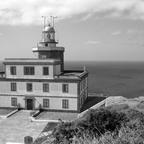March 15, 1848
2011.03.15. 01:00
 Hungary celebrates it’s par excellence springtime national holiday today, remembering the revolution of 1848 and it’s people’s heroic fight for freedom (as meant at the time) during the consecutive 1,5 year. How sad all you observe is a daunting lack of knowledge or monumental misunderstanding about almost everything related to this sublime yet heart-wrenching episode of Europe’s history, even amongst most of the Hungarians.
Hungary celebrates it’s par excellence springtime national holiday today, remembering the revolution of 1848 and it’s people’s heroic fight for freedom (as meant at the time) during the consecutive 1,5 year. How sad all you observe is a daunting lack of knowledge or monumental misunderstanding about almost everything related to this sublime yet heart-wrenching episode of Europe’s history, even amongst most of the Hungarians.
 It would certainly be impossible to clean up minds from those petrified falsifications and misbelieves of the recent past so let me remember my childhood’s March 15ths instead, when I have proudly pinned up my worn-colour cockade to join my mother for the first spring-smelling walk of the year. Is this the exact place? – I asked her every single year when we stopped at the National Museum’s stairs and I haven’t care about her answer, which went closer to reality year by year. For me there was no such rain on March 15th, 1848 which would have held back Mr. Petőfi from his enthusiastic speech standing on the stairs, at that exact place.
It would certainly be impossible to clean up minds from those petrified falsifications and misbelieves of the recent past so let me remember my childhood’s March 15ths instead, when I have proudly pinned up my worn-colour cockade to join my mother for the first spring-smelling walk of the year. Is this the exact place? – I asked her every single year when we stopped at the National Museum’s stairs and I haven’t care about her answer, which went closer to reality year by year. For me there was no such rain on March 15th, 1848 which would have held back Mr. Petőfi from his enthusiastic speech standing on the stairs, at that exact place.
Out of so many unique details of the history of the Revolution and War of Independence Pál Vasvári’s person appeals to me. Born in 1826, he wasn’t even 22 when he became one of the lead figures of the revolution as co-author of the 12 points which is a list of demands addressed in fact to emperor Ferdinand I of Austria.
He was a literature and history teacher at the time in a boarding school, worshiped by his young lady pupils (check out this short paper written by one of his pupils, carefully, it burns with devotion) and presumably emotionally linked to countess Blanka Teleki, the school’s dedicated founder, 20 years older than him.

Besides his role in the revolution’s outbreak Vasvári also took part in the armed fights of the War of Independence (literally, War of Freedom in hungarian). Despite his physical weakness he became a major having charge of around 500 souls. He was killed in 1849 during a surprise attack by a group of moţi (rumanians from the so called Stone Land) since Avram Iancu, head of the moţi insurgents have intentionally kept uninformed his marauding groups of the non-aggression agreement concluded between him and Kossuth, regent-president of Hungary. Vasvári was then 23 years old. How much he must have loved his motherland to die for her. How firmly he must have believe in his reasons to make this sacrifice at such a young age.
György Németh's short essay about Vasvári's lithographic picture.
Szerző: CabodeFisterra
· 1 trackback Szólj hozzá!
Címkék: hungary 1848 revolution march 15 vasvari pal
A bejegyzés trackback címe:
Trackbackek, pingbackek:
Trackback: Petőfi Sándor - FÖLTÁMADOTT A TENGER… 2011.03.15. 09:58:56
Kommentek:
A hozzászólások a vonatkozó jogszabályok értelmében felhasználói tartalomnak minősülnek, értük a szolgáltatás technikai üzemeltetője semmilyen felelősséget nem vállal, azokat nem ellenőrzi. Kifogás esetén forduljon a blog szerkesztőjéhez. Részletek a Felhasználási feltételekben és az adatvédelmi tájékoztatóban.













